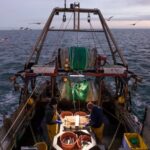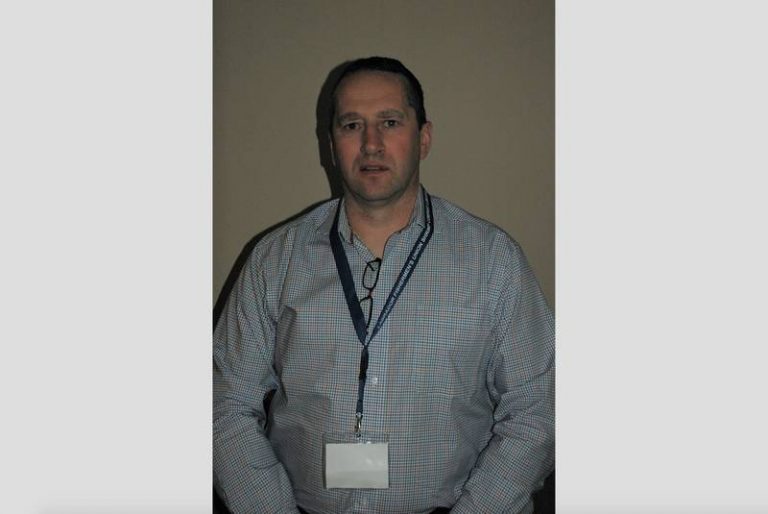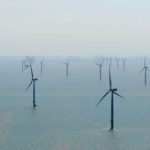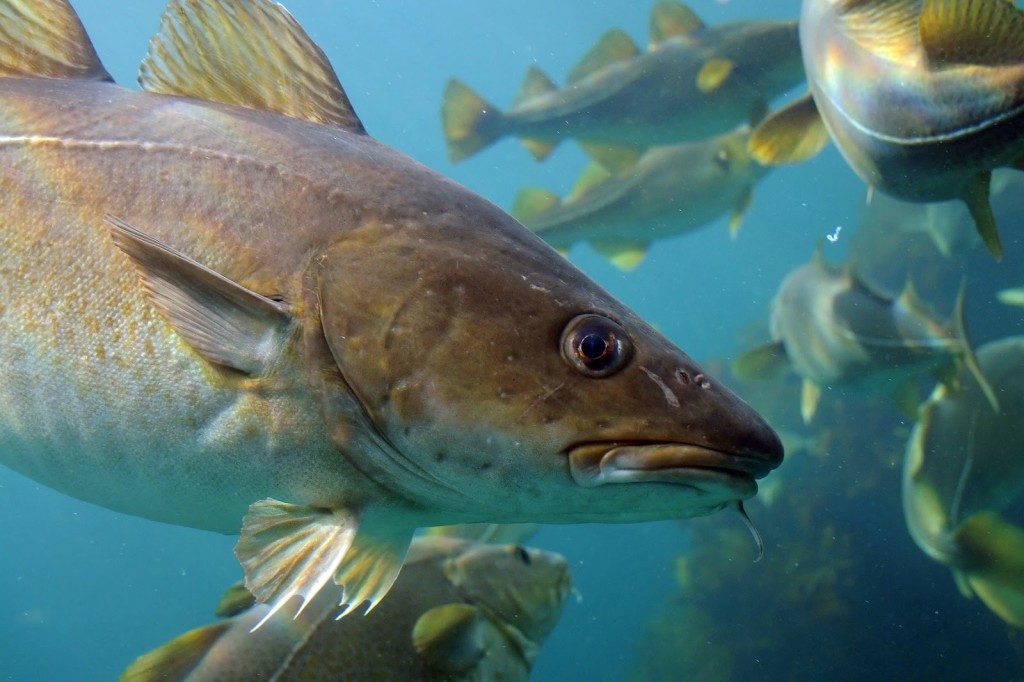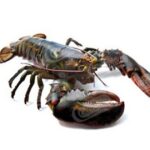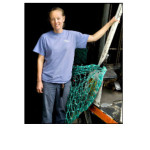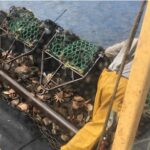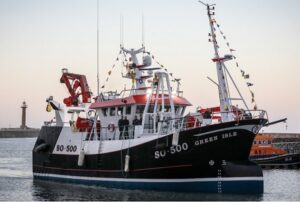Tag Archives: “Salmon farming
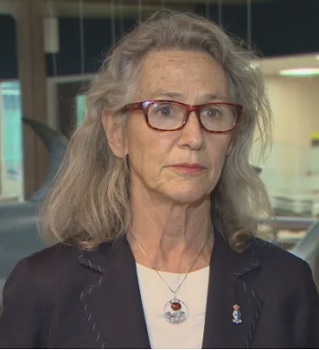
What Canadians think of the Blue Economy
Fisheries and Oceans Minister Joyce Murray released findings Friday of an engagement process on its Blue Economy Strategy, which aims to make better use of Canada’s oceans for food production, energy and marine trade. Murray’s ministry consulted 1,600 Canadians to get feedback on its Blue Economy Strategy, which is designed to protect Canada’s oceans and maximize economic benefits from it. But one of the most important ocean-based industries in B.C, salmon farming remains under a cloud of uncertainty, with investments and hundreds of jobs at risk, as a deadline for renewing 79 federal licences looms. Murray offered no clarity on whether they will be renewed in June, which is when they expire. >click to read<, The Blue Economy-Who wants the disappearance of fishermen? The answers are here. >click to read< 19:17
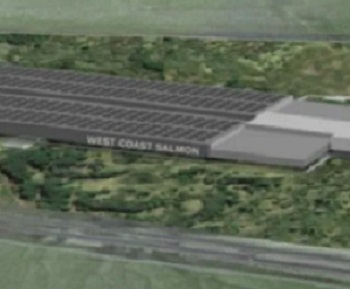
Evermore competition
“We always overestimate the change that will occur in the next two years and underestimate the change that will occur in the next ten.” Microsoft founder Bill Gates. Salmon farming is now well into that next 10, and if you’re an Alaska commercial fishermen or resident of an Alaska community still dependent on commercial fishing, you ought to be worried. Why? Because stories like this have become an almost weekly occurrence: “Norwegian company secures financing for industrial-scale salmon farm in rural Nevada.”, or in (Belfast, Me, Humboldt County, Ca., Maryland’s Eastern Shore,,, >click to read< 14:25
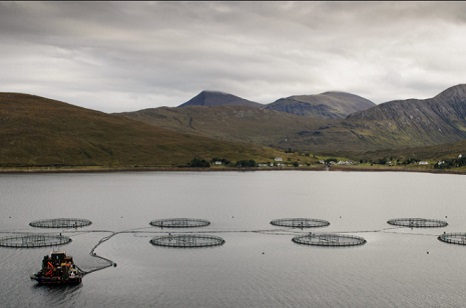
Fury as fish farm pesticide pollution rises 72% in a year
Pollution of Scotland’s lochs from a toxic fish farm pesticide has leapt 72 per cent in a year, according to data from the Scottish Environment Protection Agency (Sepa). Levels of azamethiphos discharged by 76 caged fish farms around the coast increased from 166 kilograms in 2018 to 286 kilograms in 2019. The chemical is known to kill marine wildlife. At the same time emissions of another toxic pesticide, emamectin, from 109 fish farms, rose 26 per cent. Sepa has been trying to limit its use since 2016 because of the dangers it poses to crabs, lobsters and other crustaceans. >click to read< 18:59

Prince Charles, sea lice, & why salmon farming sucks – Norwegian investors hope to delouse the salmon industry with new facility in Maryland
Business media worldwide have for weeks failed to mention that fact in amplifying a July 7, 2020 announcement that the Norwegian firm AquaCon plans to build a $300 million land-based salmon farm on the eastern shore of Chesapeake Bay. Sea pen salmon farms have worn out their nets, welcome, and often their investment return ratios from Puget Sound to coastal Scotland and Scandinavia. Factory-farming salmon in land-based tanks promises to avoid some of the issues afflicting the aquaculture industry. Land-based salmon farms, for instance, may be better able than sea pen farms to control the disease outbreaks and pollution that have become hallmarks of the land-based salmon industry. >click to read< 13:01
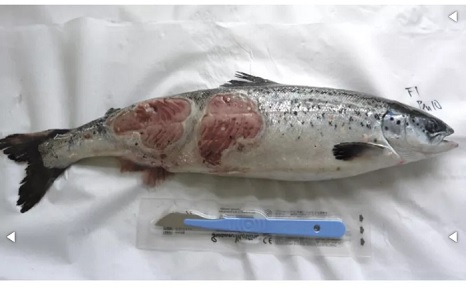
Horror photos of farmed salmon spark legal threat
The diseases, damage and infestations suffered by hundreds of thousands of caged salmon in Scotland have been exposed by more than 300 graphic photos released by the Scottish Government. Pictures taken since 2015 by fish health inspectors investigating mass deaths at salmon farms along the west coast and on islands reveal eight diseases, bloody lesions, eye damage, deformed organs, plagues of flesh-eating sea lice and much else.,,, The investigations were into outbreaks of disease and other issues at 27 fish farms run by six companies. The majority – 15 – were at farms operated by Marine Harvest, along with four run by The Scottish Salmon Company, three by Scottish Sea Farms, three by Cooke Aquaculture, two by Greig Seafood, two by Loch Duart and one not known. >click to read<17:42
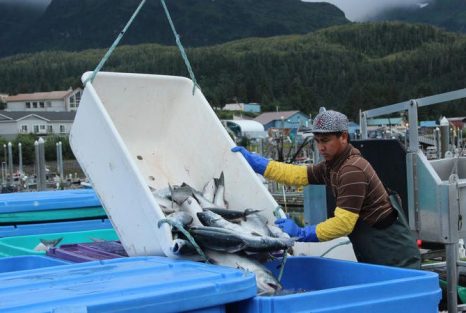
Instead of fighting global competition, Alaska’s salmon industry is (reluctantly) embracing it
Forty years ago, Alaska had a near monopoly on supplying the world with salmon. But then Norwegian fishermen began experimenting with salmon farming — raising fish in enclosed ocean pens. By the 1990s, international salmon farming had taken off, not just in Norway, but also in Canada, Scotland and Chile. As global supplies skyrocketed, Alaskan salmon prices plummeted. “In 1988, the price for Sockeye salmon in Alaska was well over $2 a pound. By about 2000, the price had fallen to 40 cents a pound,” says Gunnar Knapp, an economist and fisheries expert with the University of Alaska, Anchorage. click here to read the story 07:05
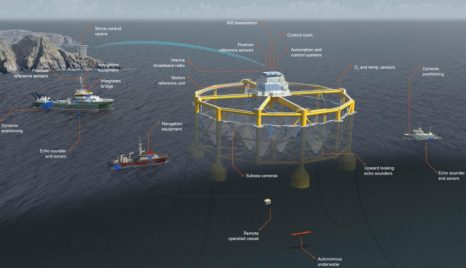
21st Century salmon
As Alaska struggles to maintain commercial productivity in its most-valuable, wild-salmon fisheries, competition in the fish market is looming on every horizon. Land-based salmon farms are popping up in odd places across the U.S., and the Norwegians and the Chinese are teaming to take salmon farming to new heights or, more accurately, new depths offshore. China.org today reported the first delivery of a deepwater, “intelligent offshore farm” to the Norwegian company SalMar ASA. “Ocean Farm 1” is designed to be positioned in water 300 to 600 feet deep where currents can sweep it clean in four dimensions while computers monitor its performance. “It is the world’s first offshore salmon farming equipment built on the same principle as semisubmersible installations used in the offshore oil and gas drilling sector,” the Chinese national website said.,, Open-ocean fish farms have been touted as one path to greening a business sometimes blamed for polluting protected bays and coves with fish waste. click here to read the story 08:38
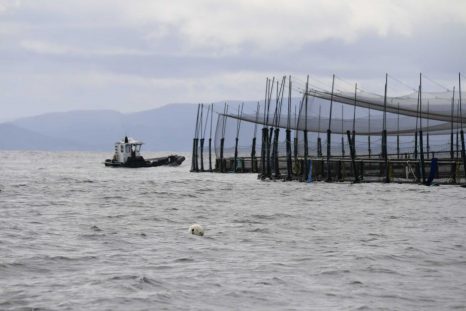
Push to investigate land-based salmon farming option for expanding Tasmanian industry
Tasmania’s Shooters and Fishers Party is pushing for land-based salmon farming, saying the move would silence the industry’s critics. The party believes with the industry’s projected dramatic expansion, and a growing groundswell of concern from the fishing community, it was time to consider options other than ocean pens. Vice-chairman Ken Orr said land-based salmon farming was being introduced around the world, including in the United States, Denmark, and on the Chinese-Mongolian border. He said the practice would eliminate uncertainty and many of the ocean open-cage controversies plaguing the industry in Tasmania. “You don’t have the issues with anyone saying that you’re trashing the environment,” Mr Orr said. “You don’t have the seal issues, you don’t have the sea lice and freshwater bathing, you don’t have the issues with escaped salmon.” Read the article here 17:24
Fisheries Minister plans ‘concrete’ action to fight declining Fraser River sockeye run
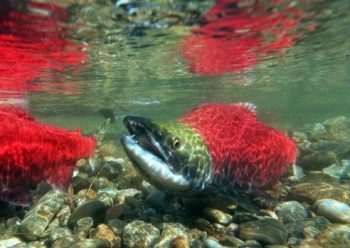 Canada’s Minister of Fisheries says the government is taking action in a ‘rigorous and robust’ way to restore the Fraser River’s sockeye salmon run, and it’s a top priority of the prime minister. Dominic LeBlanc says the federal government is committed to recommendations that came out of the Cohen Commission of Inquiry four years ago, agreeing delayed action has been “unacceptable.” He did not see an immediate need to sever the ministry mandate, to end the promotion of salmon farming, as Cohen recommended. “I wouldn’t describe it as a conflict of interest,” said LeBlanc. I think there is a way for world-class, transparent, open and available science and management decisions that are transparent to Canadians to be made with respect to aquaculture sector … that are complimentary to the protection of the wild salmon.” With the right science and regulatory regime, he said Canadians have confidence in the safety of B.C.’s beloved wild salmon Read the rest here 14:50
Canada’s Minister of Fisheries says the government is taking action in a ‘rigorous and robust’ way to restore the Fraser River’s sockeye salmon run, and it’s a top priority of the prime minister. Dominic LeBlanc says the federal government is committed to recommendations that came out of the Cohen Commission of Inquiry four years ago, agreeing delayed action has been “unacceptable.” He did not see an immediate need to sever the ministry mandate, to end the promotion of salmon farming, as Cohen recommended. “I wouldn’t describe it as a conflict of interest,” said LeBlanc. I think there is a way for world-class, transparent, open and available science and management decisions that are transparent to Canadians to be made with respect to aquaculture sector … that are complimentary to the protection of the wild salmon.” With the right science and regulatory regime, he said Canadians have confidence in the safety of B.C.’s beloved wild salmon Read the rest here 14:50
Toxic ‘red tide’ in Chile prompts protests and investigation of salmon farming
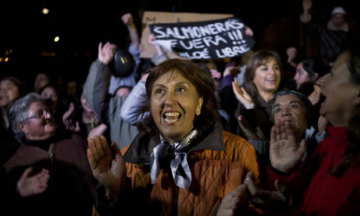 An algal bloom ‘of biblical proportions’ has led to protests and health emergency as concerns raised over dumping of rotting salmon in ocean. Chilean authorities are investigating the country’s salmon-farming industry after an algal bloom carrying a virulent neurotoxin spread for hundreds of miles along the rugged coastline of Patagonia, triggering a health emergency and angry protests by fishermen. The huge “Red Tide” has grown rapidly over recent weeks, in what has been described as the country’s worst environmental crisis in recent years: dozens of people have been poisoned by the algal bloom which makes seafood toxic and has deprived thousands of fishermen of a living. But the spotlight is now being focused on the salmon industry amid allegations that the algal bloom may have been exacerbated by the dumping of rotting salmon in the open ocean and the massive piles of salmon faeces and salmon food now smothering portions of the seafloor. Read the story here 08:24
An algal bloom ‘of biblical proportions’ has led to protests and health emergency as concerns raised over dumping of rotting salmon in ocean. Chilean authorities are investigating the country’s salmon-farming industry after an algal bloom carrying a virulent neurotoxin spread for hundreds of miles along the rugged coastline of Patagonia, triggering a health emergency and angry protests by fishermen. The huge “Red Tide” has grown rapidly over recent weeks, in what has been described as the country’s worst environmental crisis in recent years: dozens of people have been poisoned by the algal bloom which makes seafood toxic and has deprived thousands of fishermen of a living. But the spotlight is now being focused on the salmon industry amid allegations that the algal bloom may have been exacerbated by the dumping of rotting salmon in the open ocean and the massive piles of salmon faeces and salmon food now smothering portions of the seafloor. Read the story here 08:24
Sterilise farmed salmon to stop breeding with wild fish, researchers say
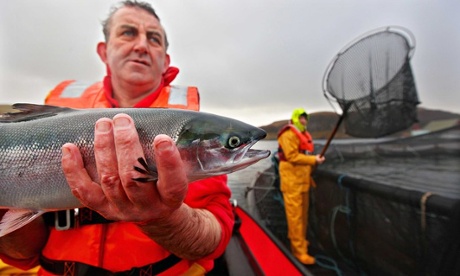 New research shows that while salmon bred in captivity for food consumption are genetically different from their wild relatives, they are just as fertile, potentially damaging wild populations if they escape and breed with them. Read more here guardian 10:26
New research shows that while salmon bred in captivity for food consumption are genetically different from their wild relatives, they are just as fertile, potentially damaging wild populations if they escape and breed with them. Read more here guardian 10:26


































